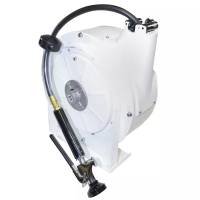Table 1. OutletandDifferentialPressureRanges
It is important that the regulator be installed
installations, the regulator should be located
so that water, ice and other foreign materials
The recommended pressure limitations are stamped on the
regulator nameplate. Some type of overpressure protection
is needed if the actual inlet pressure exceeds the maximum
operating outlet pressure rating. Overpressure protection should
also be provided if the regulator inlet pressure is greater than the
safe working pressure of the downstream equipment.
Regulator operation below the maximum pressure limitations does
not preclude the possibility of damage from external sources or
debris in the line. The regulator should be inspected for damage
after any overpressure condition.
Startup
The regulator is factory set at approximately the midpoint of the
spring range or the pressure requested, so an initial adjustment
may be required to give the desired results. With proper
installation completed and relief valves properly adjusted, slowly
open the upstream and downstream shutoff valves.
To change the outlet pressure, loosen the jam nut and turn
the adjusting screw clockwise to increase outlet pressure or
counterclockwise to decrease it. Monitor the outlet pressure
with a test gauge during the adjustment. Tighten the jam nut to
maintain the desired setting.
release of pressure, isolate the regulator from all
pressure before attempting disassembly.
TYPE
BODY SIZE
(1)
Inch bar
MR95L and MR95LD 15, 20 and 25 1/4 NPT, 1/2, 3/4 and 1
0.14 to 0.41 2 to 6
0.34 to 1.0 5 to 15
0.90 to 2.1 13 to 30
MR95H and MR95HD
15, 20 and 25 1/4 NPT, 1/2, 3/4 and 1
1.0 to 2.1 15 to 30
1.7 to 5.2 25 to 75
4.8 to 10.3 70 to 150
40 and 50 1-1/2 and 2
0.34 to 5.5 5 to 80
4.1 to 8.3 60 to 120
6.9 to 9.7 100 to 140
8.3 to 10.3 120 to 150
MR95HT
15, 20 and 25 1/4 NPT, 1/2, 3/4 and 1
1.0 to 6.9 15 to 100
5.5 to 20.7 80 to 300
40 and 50 1-1/2 and 2
1.0 to 6.9 15 to 100
4.1 to 17.9 60 to 260
MR95HP
15, 20 and 25 1/4 NPT, 1/2, 3/4 and 1
1.0 to 6.9 15 to 100
5.5 to 27.6 80 to 400
40 and 50 1-1/2 and 2
1.0 to 6.9 15 to 100
4.1 to 20.7 60 to 300
1. For Types
MR95LD and MR95HD regulators, the pressure ranges indicate the differential pressure that can be obtained with the indicated spring. The differential pressure (spring
setting) is added to the spring case loading pressure to determine the actual outlet pressure.
Table 2. MaximumColdWorkingPressuresofBodySizeandMaterial
(1)(2)
TYPE BODY SIZE
PRESSURE
PRESSURE
PRESSURE
bar psig bar psig bar psig
MR95L/
MR95LD
All available sizes
Gray Cast Iron 17.2 250 3.4 50 3.4 50
WCC/LCC Steel; CF8M/CF3M Stainless Steel;
Monel
®(3)
;
Hastelloy
®
C
(3)
20.7 300 8.6 125 8.6 125
MR95H/
MR95HD
All available sizes
Gray Cast Iron 17.2 250 17.2 250 17.2 250
WCC/LCC Steel; CF8M/CF3M Stainless Steel;
Monel
®(3)
; Hastelloy
®
C
(3)
; Aluminum-Bronze
(3)
20.7 300 20.7 300 20.7 300
MR95HP All available sizes
WCC/LCC Steel 68.9 1000 41.4 600 20.7 300
CF8M/CF3M Stainless Steel; Monel
®(3)
;
Hastelloy
®
C
(3)
; Aluminum-Bronze
(3)
68.9 1000 37.9 550 20.7 300
MR95HT
1/4 NPT and
DN 15 to 25 /
1/2 to 1-inch
WCC/LCC Steel 41.4 600 41.4 600 20.7 300
CF8M/CF3M Stainless Steel; Monel
®(3)
;
Hastelloy
®
C
(3)
; Aluminum-Bronze
(3)
41.4 600 37.9 550 20.7 300
DN 40 and 50 /
1-1/2 and 2-inch
WCC/LCC Steel; CF8M/CF3M Stainless Steel;
Monel
®
; Hastelloy
®
C; Aluminum-Bronze
41.4 600 31.0 450 20.7 300
1. The pressure/temperature limits in this Installation Guide and any applicable standard or code limitation should not be exceeded.
2. The pressure limits given are based on the body size and body materials only. Actual pressure limits of the assembled regulator may decrease and vary depending on the
temperature, body end connection, diaphragm, seat and/or trim material of the regulator.
3. Not available for 1/4 NPT body size.
Monel
®
is a mark owned by Special Metals Corporation.
Hastelloy
®
C is a mark owned by Haynes International, Inc.

